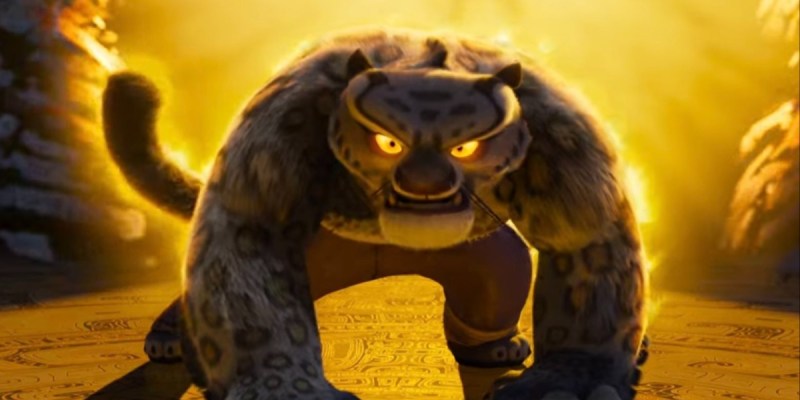Warning: The following article about why Kung Fu Panda 4‘s trailer proves Dreamworks has the best villains contains spoilers.
Villains are probably my favorite aspect of traditional action films. I’ve had problems with many modern films because most of their villains are forgettable.
The main culprit of this is the MCU. It’s such a problem that when an actually interesting villain is introduced, everyone throws a huge parade. Then, the trailer for Dreamworks’ Kung Fu Panda 4 was released, and I was reminded that Dreamworks villains are maybe the best villains.
With Dreamworks, Villains Come in All Shapes and Sizes
Dreamworks has crafted some of the most diabolical and dangerous figures in modern cinema. And looking back, it’s been doing this for a long time. It subtly overtook other studios with their villains years ago. I have many examples, but one early notable one is Ramses from The Prince of Egypt. Ralph Fiennes is incredible, playing a man who believes he has the divine right to snuff out life. His righteous rage is built up with vileness because of his deeply emotional relationship with his “brother” Joseph.
It wasn’t long after this that Dreamworks came up with the Shrek franchise, which surprisingly has so many eccentric and brilliant villains within its world. Shrek itself has the ridiculous Lord Farquaad (John Lithgow), who will always be cemented in my mind for the multi-layered jokes centered around his character. Then there was the Fairy Godmother (Jennifer Saunders), who was particularly nasty. By playing off the audience’s expectations and a truly comedic and wicked personality, the Fairy Godmother was another icon.
Whatever I Did, I Did to Make You Proud
Some of the best villains in the Dreamworks roster reside within the world of Kung Fu Panda. Every villain is great, but maybe the best one is Tai Lung (Ian McShane). Introduced bathed in shadow and guarded by a thousand soldiers, he escapes in one of the most cinematic and epic ways possible in a narrative – the self-fulfilled prophecy. People were sent there to ensure he didn’t escape because of a vision, but through their actions, he fulfilled what they feared. It’s the ultimate power move – not only that, but his escape is visually sumptuous.
For me, his most impressive element is his motivation because it’s relatable. Having been found by Master Shifu (Dustin Hoffman) and trained until his bones broke, he was denied what he was promised. He was denied what he believed was his right – the title of Dragon Warrior. Ultimately, what he truly wanted was acceptance for all he did – for all he sacrificed. He wanted to make his father proud. Tai Lung is a font of negativity defeated by Po’s positivity and understanding. It’s a powerful message.
I’m Death. Straight Up.
For me, though, one of the best villains on the Dreamworks dream team is a recent addition, the Wolf in Puss in Boots: The Last Wish. He’s vicious, his presence is remarkable, and what he represents is nothing short of terrifying. What he brings to the narrative of Puss in Boots is astounding. The Wolf is something elemental, otherworldly, and uncompromising. What he does to Puss, the main character, is to elevate him. He makes Puss a better version of himself. It’s remarkable, really.
And I believe that is what a villain should bring to a narrative. They should raise the stakes and make us worried for our heroes. You can see this in many Dreamworks films, including the How to Train Your Dragon franchise.
I love villains, and Dreamworks has lowkey cornered the market. If you’re looking for a memorable monster, look no further than a Dreamworks villain.
